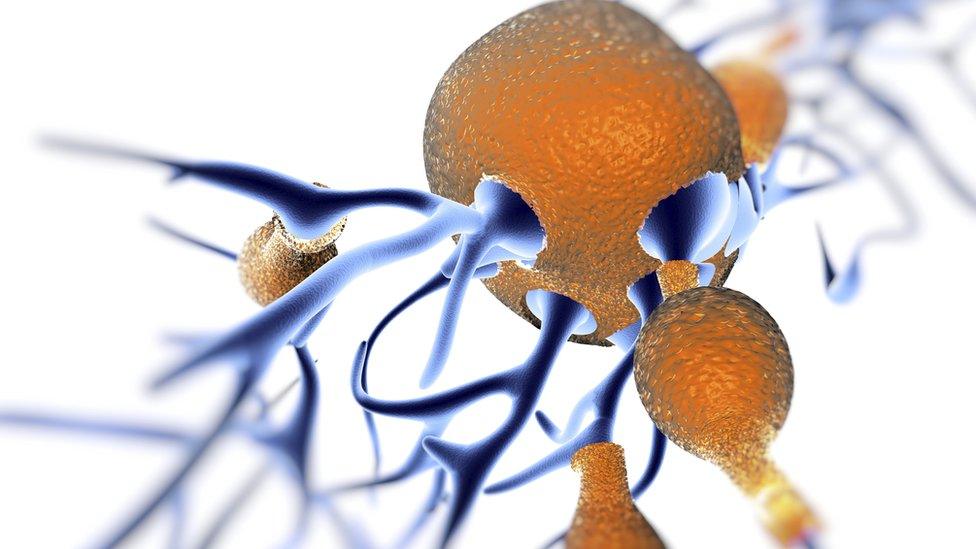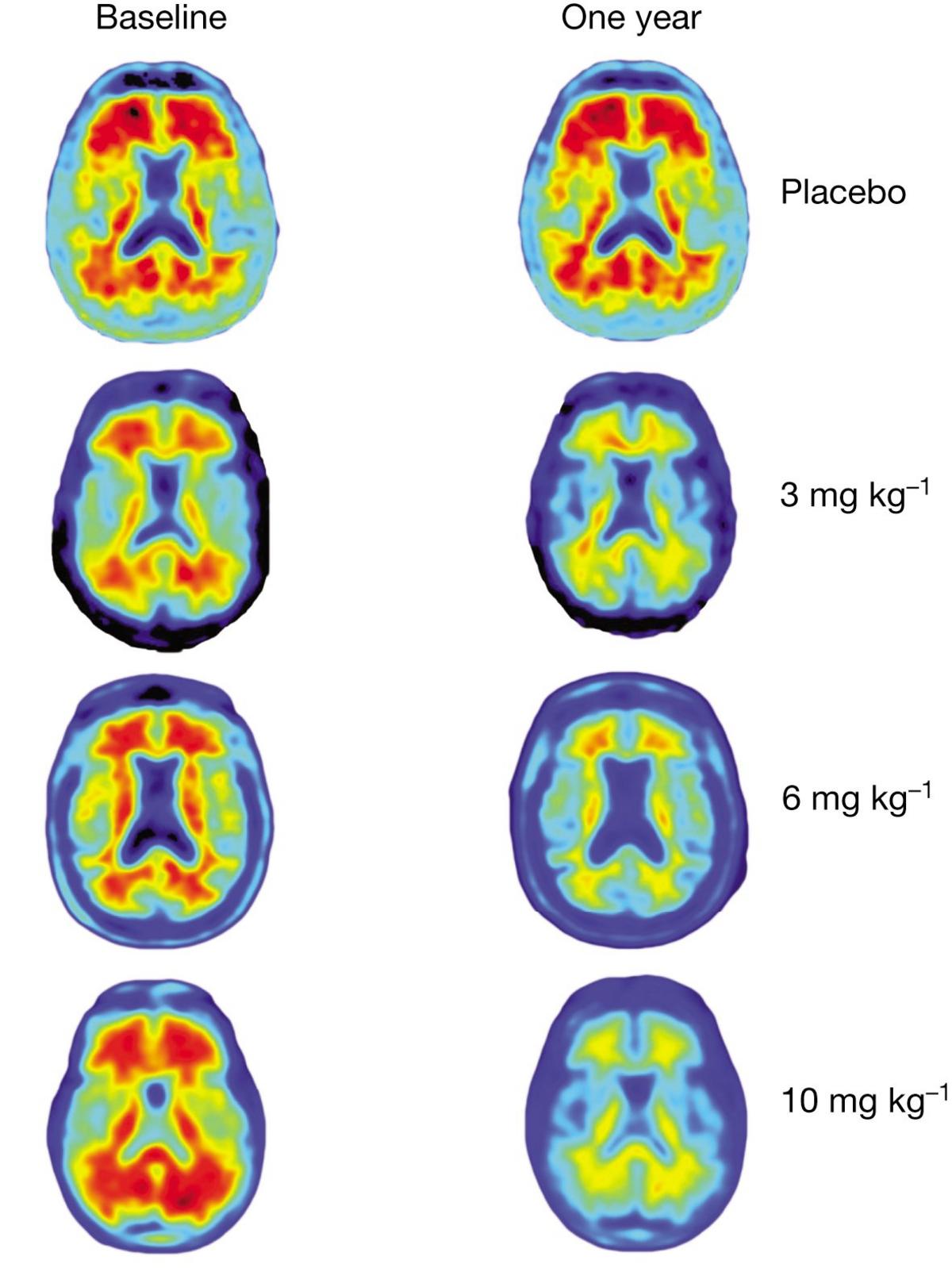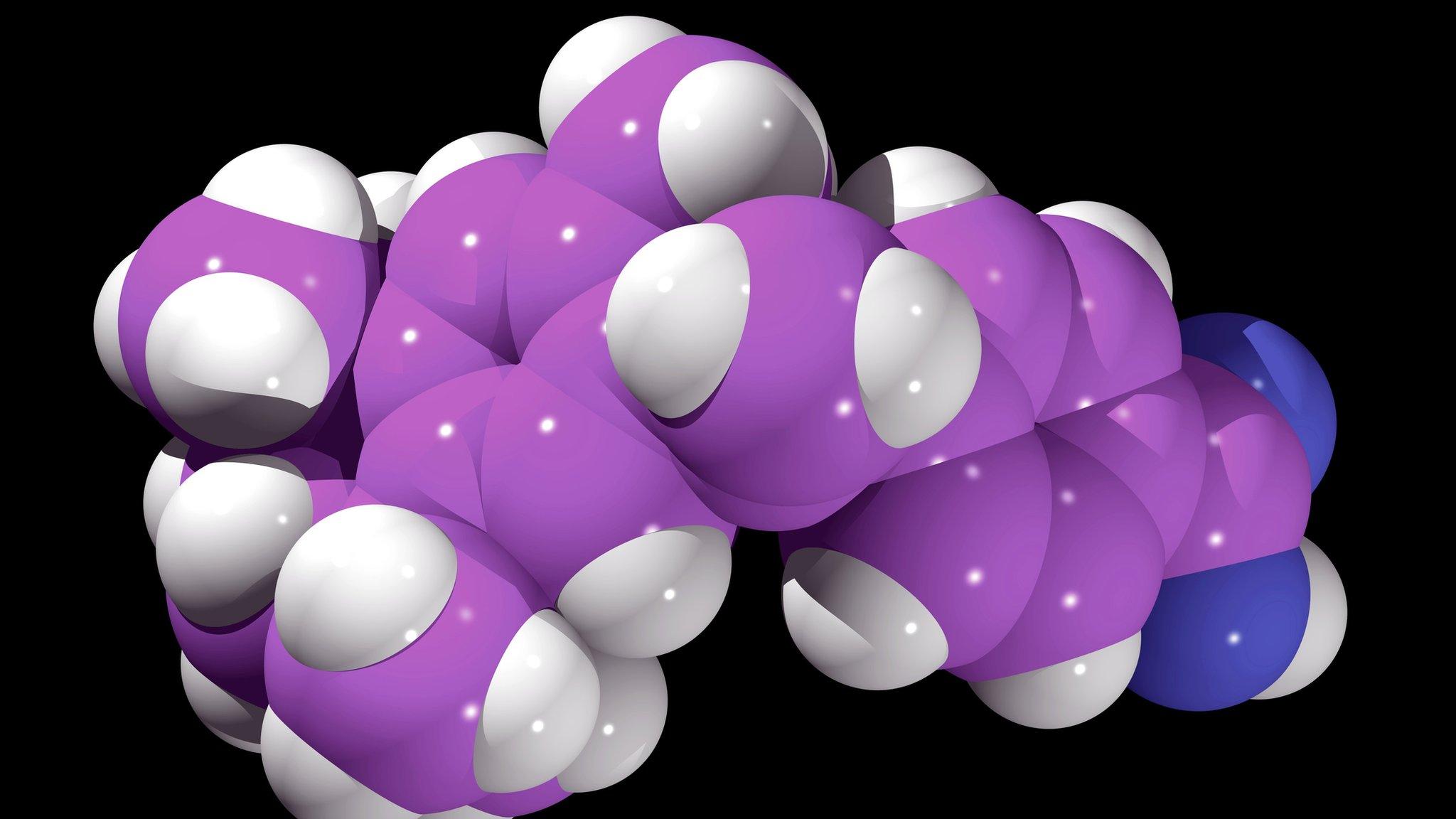Alzheimer's drug study gives 'tantalising' results
- Published

A drug that destroys the characteristic protein plaques that build up in the brains of patients with Alzheimer's is showing "tantalising" promise, scientists say.
Experts are cautious because the drug, aducanumab, is still in the early stages of development.
But a study in Nature, external has shown it is safe and hinted that it halts memory decline.
Larger studies are now under way to fully evaluate the drug's effects.
The build-up of amyloid in the brain has been a treatment target for many years.
Dropped out
This study, of 165 patients, was designed to test aducanumab was safe to take.
After a year of treatment, it also showed the higher the dose the stronger the effect on amyloid plaques.
The researchers then carried out tests on memory and found "positive effects".
However, 40 people dropped out of the study, half because of side effects they experienced, such as headaches. These too were much more common with a higher dosage.
The next phase of research - phase 3 - involves two separate studies. These are recruiting 2,700 patients with very early stage Alzheimer's across North America, Europe and Asia in order to fully test the drug's effect on cognitive decline.

Brain scans show the effect of different dosages after a year
Dr Alfred Sandrock of the biotech company Biogen, which worked with the University of Zurich on the research, said: "Phase 3 really needs to be done and I hope it will confirm what we have seen in this study.
"One day I could envisage treating people who have no symptoms because if you have amyloid in the brain it's likely you'll develop Alzheimer's one day."
'Significant step'
However, there have been many disappointments in Alzheimer's drug development, and it is over a decade since the last drug for people with the condition was licensed.
Other experts have welcomed this latest research - but with caution.
Dr David Reynolds, chief scientific officer at Alzheimer's Research UK, said the results provided "tantalising evidence that a new class of drug to treat the disease may be on the horizon".
And Dr James Pickett, head of research at the Alzheimer's Society, added: "What is most compelling is that more amyloid was cleared when people took higher doses of the drug.
"No existing treatments for Alzheimer's directly interfere with the disease process and so a drug that actually slows the progress of the disease by clearing amyloid would be a significant step."
However, Dr Tara Spires-Jones, of the Centre for Cognitive and Neural Systems at the University of Edinburgh, said: "I am cautiously optimistic about this treatment, but trying not to get too excited because many drugs make it through this early stage of testing then go on to fail in larger trials."
And John Hardy, professor of neuroscience at University College London, said: "These new data are tantalising but they are not yet definitive."
- Published22 August 2016

- Published27 July 2016

- Published13 February 2016
